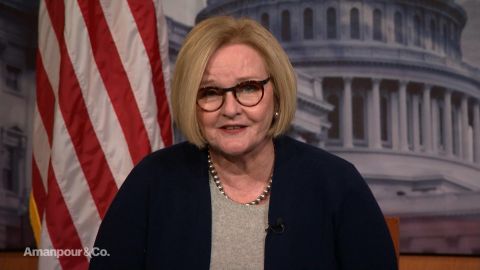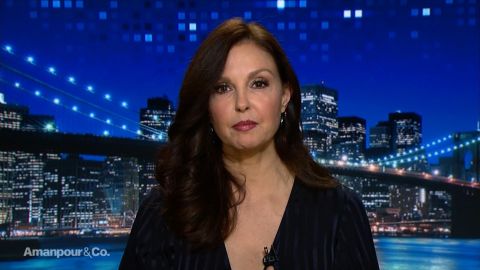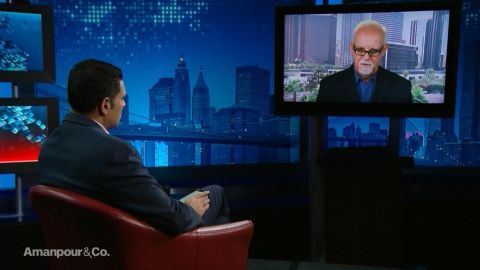Read Transcript EXPAND
ASHLEY JUDD: It’s so exciting that #MeToo is not a moment but it’s a movement in which we can all come to understand the roles that we play and perpetuating misogyny and chauvinism and inequality. And, you know, one of the things I hope we have an opportunity to talk about is what the world is going to look like when we achieve equality. I think that, you know, when we talk about the backlash and some people are afraid of what they’re losing as a result of, you know, smashing the patriarchy, what we need to articulate is the vision of what we’re gaining, which is healing for our society. And it’s not about replacing patriarchy with matriarchy, it’s about having an egalitarian society where boys and girls and women and men share power, share responsibility, share opportunity and I think it’s a vision of healing and that’s part of the message that I hope I can carry.
AMANPOUR: Well, let’s just discuss that. I mean, now is the time to discuss this vision of the future. But you put it in a way that sounds completely and utterly logical and most women — most — many women would agree with you. However, I was at a dinner last night where you’d think that women would be proudly talking about feminism and the rest but no, still feminism is an unknown and scary word even amongst many women. And what is it about the narrative and about the moment that needs to change? I mean, we’re one year plus past the #MeToo movement and still women — forget some men, women refuse to call themselves feminists and say, “This is all too much and we want to be flirted with and we want to do this is that and, you know, God forbid, our boys are targeted,” which was the whole narrative around the Kavanaugh approval process.
JUDD: Well, as God knows, women have been targeted for a very long time. And I understand that we’re recalibrating our society and that means change and change can be threatening, it’s definitely uncertain and chaotic and we just have to learn how to be comfortable being uncomfortable for a period of time. And, you know, if we end impunity for men who behave badly, we also need to have the opportunity to put forward men who behave well and who model what a healthy inclusive masculinity looks, sounds and feels like. I mean, Tarana Burke articulated #MeToo 12 years ago when she was lying on a mattress, on the floor in her apartment and said, you know, “I’ve also been a victim of sexual assault and I’m also a survivor,” and she developed this action plan which became the #MeToo movement when the hash tag was launched a year ago. So, who is going to be her corollary? Who is going to be the guy who comes forward, who’s humble and contrite and accountable and shows us what restorative justice looks like? That’s what I’m excited about. I try not to get caught up in all of the, you know, oh, my gosh. “Baby, It’s Cold Outside” isn’t being played on the radio anymore, what has the world come to? Let’s talk about what the world can and should be.
About This Episode EXPAND
Christiane Amanpour speaks with U.S. Sen. Claire McCaskill about the consequences of fierce partisanship and actress/activist Ashley Judd about the road ahead for the Me Too movement. Hari Sreenivasan speaks with Steve Lopez, columnist for the LA Times, about the child poverty rate in LA.
LEARN MORE


